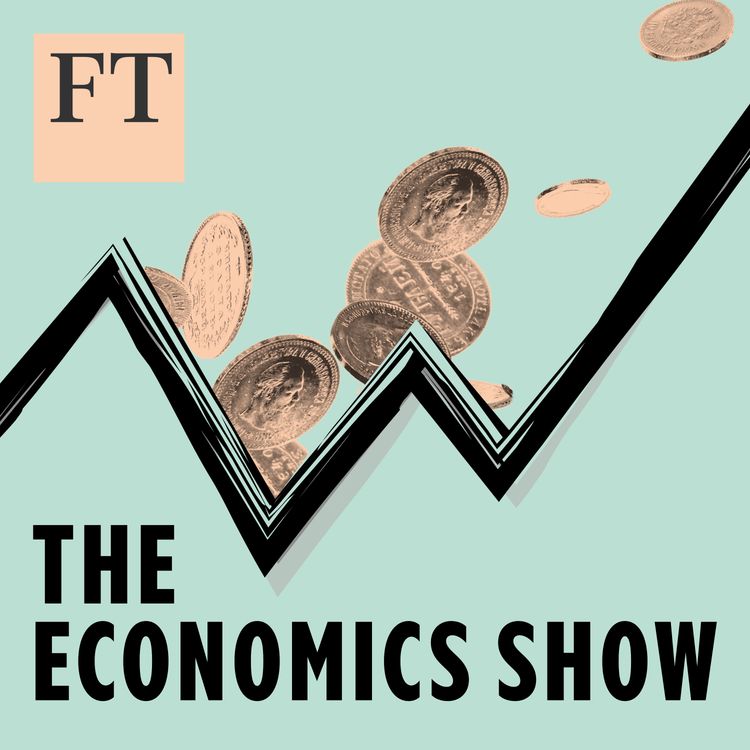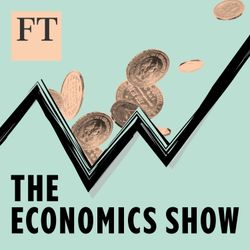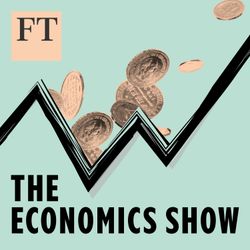Share

The Economics Show
Martin Wolf interviews Larry Summers: Is Trump a threat to the US economy?
The US has just overcome one abrupt spike in inflation, which may have cost Kamala Harris her bid for the presidency. But now President-elect Donald Trump’s policy agenda threatens to cause another one. That’s according to Larry Summers, the former US Treasury Secretary and President Emeritus of Harvard University. He speaks to the FT’s Martin Wolf – who is standing in for Soumaya Keynes while she is on maternity leave – about the risks to economic stability posed by Trump’s proposed tax cuts, trade tariffs and mass expulsion of illegal immigrants, as well as his threats to the rule of law.
Martin Wolf is chief economics commentator at the Financial Times. You can find his column here
Subscribe to The Economics Show on Apple, Spotify, Pocket Casts or wherever you listen.
More episodes
View all episodes

Martin Wolf talks to Arvind Subramanian: India, the next economic superpower?
30:40|India is the world’s most populous nation, and since the 1990s it has maintained almost Chinese levels of rapid economic growth. Prime Minister Narendra Modi aims to make India a high income country and, by implication, an economic superpower by 2047. But is that achievable? This week’s guest, Arvind Subramanian, is a former chief economic adviser to Modi’s government. He is sceptical that the necessary growth rate can be sustained. Instead, he tells Martin Wolf how he thinks the government has scared off the necessary business investment, and how a serious miscalculation by the country’s central bank may be about to plunge India into a currency crisis.Martin Wolf is chief economics commentator at the Financial Times. You can find his column hereSubscribe to The Economics Show on Apple, Spotify, Pocket Casts or wherever you listen.Read a transcript of this episode on FT.com
Update from Davos: Can industrial policy really work? With Beata Javorcik
30:26|Sam Fleming is the FT’s Economics Editor, and this week he is reporting from the World Economic Forum at Davos, where much of the talk is about protectionism and industrial policy. Today on the show, Sam speaks to Beata Javorcik, the chief economist of the European Bank for Reconstruction and Development. They discuss the history of industrial policy -- and what it takes to get it right.Subscribe to The Economics show on Apple, Spotify, Pocket Casts or wherever you listen.Read a transcript of this episode on FT.com
Trump and the history of tariffs. With Doug Irwin
43:18|Doug Irwin is a professor at Dartmouth College and the author of several books on trade. Today on The Economics Show, he joins the FT’s Senior Trade Writer Alan Beattie to discuss the history of tariffs in the US, and what that history might tell us about the next round of tariffs.Alan writes the Trade Secrets newsletter. You can sign up here. He is on Bluesky at @alanbeattie.bsky.social. Subscribe on Apple, Spotify, Pocket Casts or wherever you listen.Read a transcript of this episode on FT.com
Martin Wolf speaks to Andrew J Scott: Can societies age gracefully?
32:31|Increasingly elderly populations seen in countries such as Japan and Italy are set to become the norm everywhere in the coming decades. But will a more senior demographic make the cost of state pensions and healthcare unaffordable? And will it kill economic growth? Not necessarily so, according to today’s guest, Andrew J Scott, director of economics at the Ellison Institute of Technology Oxford. He believes that the rapidly growing cohort of over-65s is something to celebrate. But he also warns that we need to radically rethink many of the policies that delivered this widespread longevity in the first place. Martin Wolf is chief economics commentator at the Financial Times. You can find his column hereSubscribe to The Economics Show on Apple, Spotify, Pocket Casts or wherever you listen.Read a transcript of this episode on FT.com
Martin Wolf interviews Mariana Mazzucato: Can the state innovate?
31:19|In 1962, then US president John F Kennedy committed his nation to reaching the Moon before the decade was up. It was a huge undertaking, but one that ultimately succeeded, and also produced technologies such as camera phones and baby formula along the way. But have governments today lost the confidence and knowhow needed to undertake such ambitious challenges? That’s the contention of today’s guest, Mariana Mazzucato, professor in the economics of innovation and public value at University College London. She believes states need to rediscover mission-purpose and take the lead in solving problems such as climate change, pandemics or water scarcity.Martin Wolf is chief economics commentator at the Financial Times. You can find his column hereSubscribe to The Economics Show on Apple, Spotify, Pocket Casts or wherever you listen.Read a transcript of this episode on FT.com
Martin Wolf interviews Christine Lagarde: Whither Europe?
40:06|The Eurozone’s economic recovery from Covid-19 has been anaemic compared with America’s, despite achieving a soft landing from double-digit inflation. Indeed, Europe’s relative underperformance stretches back even longer, perhaps 30 years, in terms of productivity and GDP growth. Christine Lagarde, president of the European Central Bank, gives her assessment of the past few turbulent years of monetary policy and explains what she thinks Europe needs to do next if it is to close the gap with the US. She also gives her view on how the EU can negotiate its way out from between the rock of the incoming Trump administration and the hard place of another Chinese export glut.Martin Wolf is chief economics commentator at the Financial Times. You can find his column hereSubscribe to The Economics Show on Apple, Spotify, Pocket Casts or wherever you listen.Read a transcript of this episode on FT.com
Martin Wolf interviews Lant Pritchett: Is mass immigration inevitable?
30:03|Mass immigration is demographically essential but politically impossible – so argues Lant Pritchett, development economist and visiting professor at the London School of Economics. As populations age in the rich developed countries, immigrant workers will be needed to help with the burden of providing for the elderly. Removing the barriers might also be the quickest way to raise living standards for people in the developing world. But doing so would require swimming against a rising tide of anti-immigrant populism. Pritchett thinks he has a solution – allowing immigrants to come and work temporarily on strictly time-limited contracts. But does his idea stand up to scrutiny?Martin Wolf is chief economics commentator at the Financial Times. You can find his column hereSubscribe to The Economics Show on Apple, Spotify, Pocket Casts or wherever you listen.Read a transcript of this episode on FT.com
Is the Eurozone in trouble? With Philip Lane
27:24|It’s a treacherous time for the Eurozone. Inflation is falling, yes, but at the same time signs of real economic weakness are growing. And there are risks on the horizon, from rising debt to trade wars to real wars. It’s a perfect time to speak to our guest Philip Lane, chief economist of the ECB and a member of its executive board. And this week we have a co-host as well, Frankfurt bureau chief and ECB correspondent Olaf Storbeck.For Philip Lane’s recent speech on monetary policy uncertainty, see hereSoumaya Keynes writes a column each week for the Financial Times. You can find it hereSubscribe to Soumaya's show on Apple, Spotify, Pocket Casts or wherever you listen.Read a transcript of this episode on FT.com